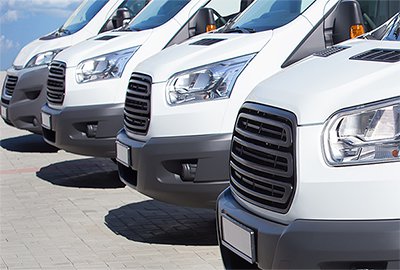An analysis of the most pressing concerns based on insights from 1,000 UK business leaders.

Arranging the right insurance when insuring a fleet of vehicles can feel like an arduous process. It is essential that you can secure value for your money, whilst also ensuring you have a robust policy in place to cover your needs. However, understanding each of the component parts of a policy can be complex. That’s why it you should seek advice to help maximise the benefits from your fleet insurance so you can make the right choice.
Here are some key considerations when choosing a policy and advice in managing the process:
Understanding your Risk
You should have a good level of understanding about your risk before you start working with your broker to look for an insurer. It’s best practice to hold as many details as possible, as the more you can provide to underwriters, the better the bids that can be received. It’s also worth considering what emerging risks may affect your operations in the future. Look at where your organisation is going and what risks are likely to emerge. Your broker can assist you in finding new solutions to match changing requirements.
It’s also a good idea to retain as much risk as you can reasonably afford. Taking a sizeable excess, for example, can reduce your costs and avoid pound swapping, as well as reducing your Insurance Premium Tax exposure.
Working with Insurers
It’s worth understanding what additional support the insurer can offer you. For example, risk management support may be of value and may sway your decision on which policy to choose. Also consider what claims handling support you require, as you may be able to agree to have a nominated team rather than a call centre.
Don’t be afraid to negotiate with insurers on certain things. For example, if you already have a relationship or contract with key suppliers, such as repairers, adjusters or legal advisers, the insurer may agree for them be the preferred option.
Driving Restrictions
It’s advisable to have an understanding, or profiles, of the drivers in your workforce and their responsibilities. This is so you can cross check it against the terms, conditions and endorsements of a new policy, for any clauses which may restrict driving. For example, some insurers will restrict the driving of certain vehicles to people over a certain age, or limit drivers to certain vehicle types or to vehicles of a certain cubic capacity. All of these could ultimately restrict you from carrying out your activities because the drivers you have in place may not be covered.
Overnight Parking
Some insurers will have specific security requirements that you need to comply with, in terms of overnight parking. For example, they may not only want you to ensure the vehicles are kept on locked premises, but the policy may stipulate what security needs to be in place, such as steel roller shutters and a Redcare Alarm. It’s important to check that your current security features are in line with these requirements to ensure insurers will consider any claims that may arise. If not, you may need to choose another policy or get the required security features installed, which may add to your costs.
Key Security
Similar to overnight parking, insurers are likely to have key security clauses you’ll need to be aware of. For example, some require keys to vehicles to be kept in approved locked key cabinets or safes. Some may even require keys to be stored offsite in an approved safe. It’s important to ensure that these requirements are realistic for your operation.
Choosing a policy
It’s important to review your current policy cover as well as the alternative options to help identify any duplication or gaps. By working with your broker, you can make sure your policy cover is fit for purpose. It’s also advisable to meet with bidders, as this gives you the opportunity to explain to the supplier what is really important to you and your operations, and they can tailor their bids to suit. Finally, when awarding the contract, always ensure that the award criteria is absolutely relevant to what you want to buy. The criteria should reflect what you need from your insurance.
By following this advice, and working with an experienced broker, you can protect your fleet and operations with confidence, knowing that you have the right insurance solution in place to keep your business going, should you need to make a claim.
To learn more about the Automotive practice, and how it could help you and your business, contact the Automotive team on 01582 542 330.


